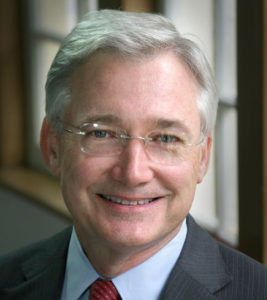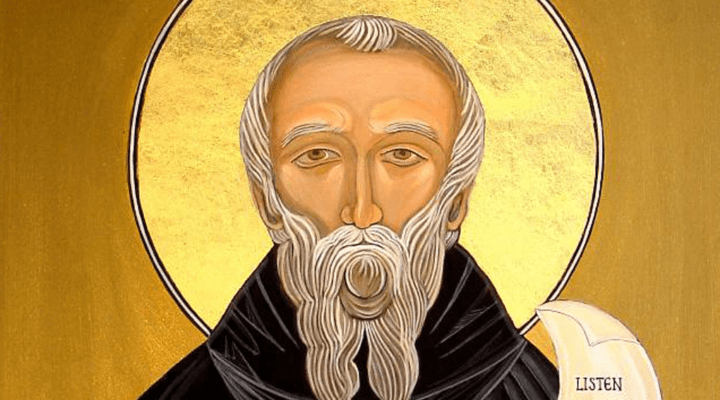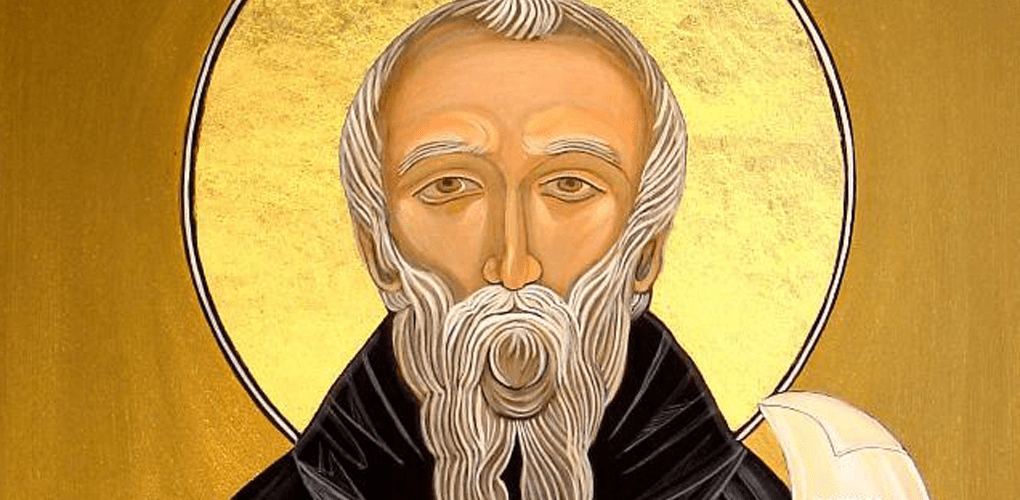How are we to live as part of the church in America in these terrible times for the church and society?
The perils of Christian nationalism were on full display on Jan. 6 as insurrectionists stormed the U.S. Capitol in an effort to stymie democracy that caused grievous death and injury. Prominent amid the white supremacist, Confederate and Nazi insignia were the Christian prayers and the banners with the Christian crosses and the name of Jesus on them.

Stephen Shoemaker
A number of Christians have been watching with growing unease and disbelief these last four years as millions of Christians, prominently evangelical Christians, joined with Christian nationalism and white Nationalism in thrall to the Trump Party. The unease has turned to horror. Where shall we go as the church in America?
Some point us to Benedict. In 1981, the noted philosopher Alasdair MacIntyre wrote a vigorously debated book, After Virtue. In it he described the collapse of moral virtue in the West, such virtue necessary to sustain both democracy and the good society. His last paragraph contained this stirring call to awareness of where we are and to action:
What matters at this stage is the construction of local forms of community within which civility and the intellectual and moral life can be sustained through the dark ages which are already upon us. … This time, however, the barbarians are not waiting beyond the frontiers; they have already been governing us for quite some time. …We are waiting not for a Godot, but for another — doubtless very different — St. Benedict.
He was calling for a renewal of virtue through the life of small communities, as Benedict and the Benedictine monastic movement helped preserve the intellectual and moral life of Christianity in the Dark Ages. Since his book, Rod Dreher has carried the conversation on in his book, The Benedict Option. He argues that the American life has been so corrupted and is now so devoid of virtue that the path of Benedict is the only viable path forward.
I would prefer to talk of the two-fold path of the American church in these dismaying times. First, we are to continue to work and pray for the welfare of the nation, even as God through his prophet Jeremiah counseled the Hebrew people in Babylonian Captivity: “But seek the welfare of the city where I have sent you into exile and pray to the Lord on its behalf.”
The church must not abandon the public and political realms to those who have no desire to serve the common good. And yet, there is the second path of what some call the Benedict option, which the church must take up with urgency, that is the renewal and rebuilding of the church through local communities of faith. This, too, serves the future of the nation.
The beginning place is a refocusing on the teachings of the historical Jesus, that is, on “the religion of Jesus” rather than “the religion about Jesus” as some have put it. Tolstoy said we cannot believe in the Nicene Creed and the Sermon on the Mount. The Apostles’ Creed and Nicene Creed catapulted from “born of the Virgin Mary” to “suffered under Pontius Pilate” with no word about the ministry and teachings of Jesus.
But lest we “non-credal” folk like Baptists feel too smug, we have done the same by making the whole life of Jesus about his “atoning death” on the Cross, or in the reducing of faith to the “Four Spiritual Laws,” or making the “Sinner’s Prayer” more important than the Lord’s Prayer, or in the confining of God’s salvation of the world to the forgiveness of our personal sins and gaining a secure seat in heaven. No wonder we are such sitting ducks for sub-Christian and pseudo-Christian political and social movements.
“Perhaps the susceptibility of so many Christians to the lure of political power and the tribal energies of Trumpism is due to the virtual eclipse of the life and teachings of Jesus in American Christianity.”
Perhaps the susceptibility of so many Christians to the lure of political power and the tribal energies of Trumpism is due to the virtual eclipse of the life and teachings of Jesus in American Christianity.
As we put the religion of Jesus back into the center of our common life, we will find ourselves in the minority; as Jesus said, it is the narrow way that leads to life. We always should have been suspect of Christians who claimed to be the” Moral Majority.” Theocracy in America always will be only tangentially Christian — and deceivingly so.
The answer to the question posed in Charles Sheldon’s spiritual classic, In His Steps — “What would Jesus do?” — is not as easy or automatic as it sounds. But it is hard to imagine going very far in the Christian path without keeping that question central. Where to start? How about the Sermon on the Mount?
Stephen Shoemaker serves as pastor of Grace Baptist Church in Statesville, N.C. He served previously as pastor of Myers Park Baptist in Charlotte, N.C.; Broadway Baptist in Fort Worth, Texas, and Crescent Hill Baptist in Louisville, Ky.


